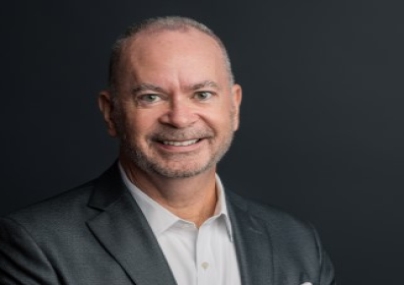
Rachita Maker is vice-president and head of legal operations at India’s Tata Communications. In her role, she heads global legal operations at the company, and is responsible for leading the legal department’s transformational journey to be more technology- and data-driven. Maker is responsible for multiple technology implementations, continuous improvement, and automation projects. Prior to joining Tata Communications, she was vice president of legal services at Integreon.
ALB: Tell us about your legal career so far, and what led you to taking up this role.
Maker: I have over eighteen years of experience in the legal industry and I have spent a large part of my career in the alternative legal services and legal consulting space. During my career, I have worked with some of the leading companies in the industry, including Pangea3 (a Thomson Reuters Company), and EY. I have worked with general counsels in various industries ranging from telecom to BFSI, healthcare and technology, helping them solve complex legal problems. Taking on the role of heading the legal operations at Tata Communications was a natural progression in my career, as I wanted to work with a corporate in order to have a different perspective of the challenges faced by in-house teams. My experience in technology, process and management of legal business is an added value as I can innovate and implement solutions that are best suited to our current needs.
ALB: What have been some of the highlights from your career so far? And what are some leadership lessons you have learnt?
Maker: I took the road less travelled when I began my career and set foot in the world of legal outsourcing as opposed to taking the traditional law firm route. My early career decisions gave me a very different perspective to the business of law, and I was able to marry my legal education to the knowledge I gained on processes and technology. I had the opportunity to work with a start-up very early in my career and it gave me exposure to all areas of business very early on. I worked with several global clients which helped me learn from lawyers across the world ranging from the U.S. to UK to Australia to Singapore. Given my chosen field, I was intimately involved in legal technology from its very early days and have seen it evolve over the last fifteen years. This puts me in a unique position today as I can craft effective solutions with ease.
I think one of the leadership lessons I have learnt is that leadership is situational. “One-size-fits-all” doesn’t work and as a leader you need to adapt yourself to your people and the situation.
ALB: What are the key strategic shifts that legal teams of today should look at?
Maker: It is important for corporate legal teams to keep the customers at the centre of their strategy and operations. Aligned with the company’s culture, these teams should be designed to become a strategic business enabler that adds to the ‘customer-first’ approach of the company. Businesses can ride on a future-ready legal department that is focused on driving economic value for the company by keeping innovation and automation at the core.
ALB: How important is the company’s culture, according to you? What kind of internal culture should be fostered both within the team, as well as the business as a whole?
Maker: A company’s culture has always been important, but more so in the recent times. The pandemic has made it very clear that organizations that are agile and nimble will lead the change during these trying times. The values of excellence, innovation and passion are critical as customers are continuously seeking organizations who can adapt quickly to the uncertain times and continue to provide unrestricted services. Given the uncertain times we are all living in currently, it is important to reinforce the culture of innovation, responsiveness and excellence. These values never go out of fashion and become even more relevant when the going is tough.
ALB: How do you think lawyers and legal teams should approach technology?
Maker: I think it is a known fact that lawyers are late to the use of technology compared to our peers in finance, HR and other parts of the business. However, use of technology is more pertinent today than ever. Lawyers and legal teams need to embrace technology more than before, but they also need to understand that technology is not a magic wand - it requires planning and thoughtful implementation. It is important for legal teams to start by studying their processes in detail and identifying gaps. It is not necessary to do big-bang implementations, but instead make small changes and start by using low-codes or no-codes tools. It is important to have a solution that is flexible and can adapt to dynamic environment.
ALB: How are legal requirements evolving in recent times, either generally or as a result of the pandemic? How does that change the way external counsel and other legal services providers are being leveraged?
Maker: Increased regulatory pressures, new organizational risks, multiple jurisdictions and locations, and advancement in technologies have all resulted in the evolution of legal requirements in the last few years. Organizations are leaning towards law firms that are willing to offer creative solutions and innovative fee structures. Firms that are focussed on performance and provide value-added services will be favoured over others.
ALB: What skills should the lawyer of the future have?
Maker: I believe the changes in the legal profession are evident already, and the lawyers today have evolved far more in the last couple of years than they did in the last two decades. I think lawyers understand that while deep legal expertise is a given, they need to be viewed as business partners. The lawyers of the future will complement their legal knowledge with strong interpersonal skills, communication skills, project management, technology, process efficiency, and analytical skills. The lawyers of the future will not limit themselves to legal documentation or transactions or litigation but will look at a problem holistically and move from being a cost centre to a business enabler.
ALB: What motto do you live by?
Maker: The motto that I live by is “change is the only constant.” Nothing has been truer in my life. It helps me go through these uncertain times knowing that this too shall pass, and the tide will turn. The world we live in today, is changing faster than we would have imagined and we need to be ready to adapt to this dynamic world.
ALB Conversations is a weekly series of in-depth Q&As with leaders of law firms and in-house legal departments across Asia. If you are a managing partner or general counsel based in the region who is interested in being a part of this series, please send an email to aparna.sai@tr.com.


